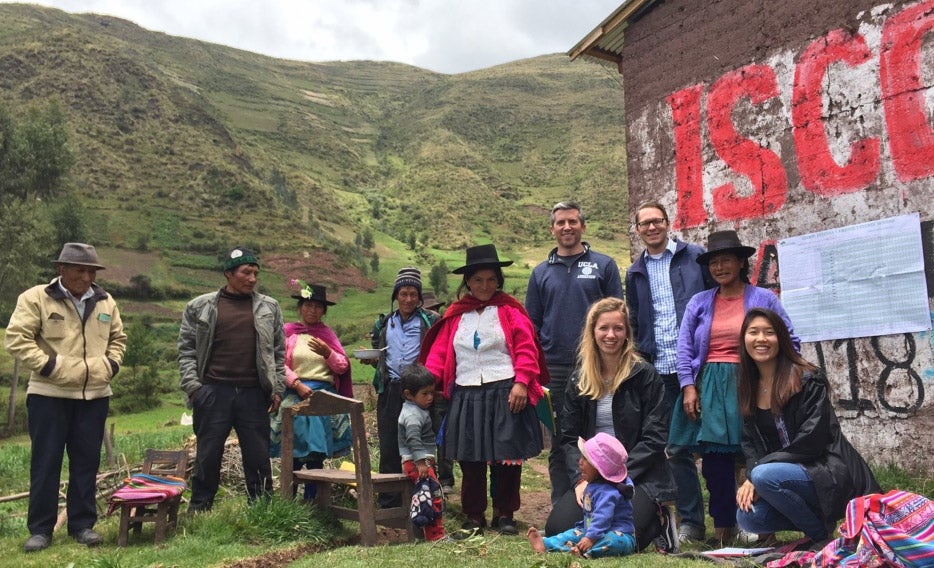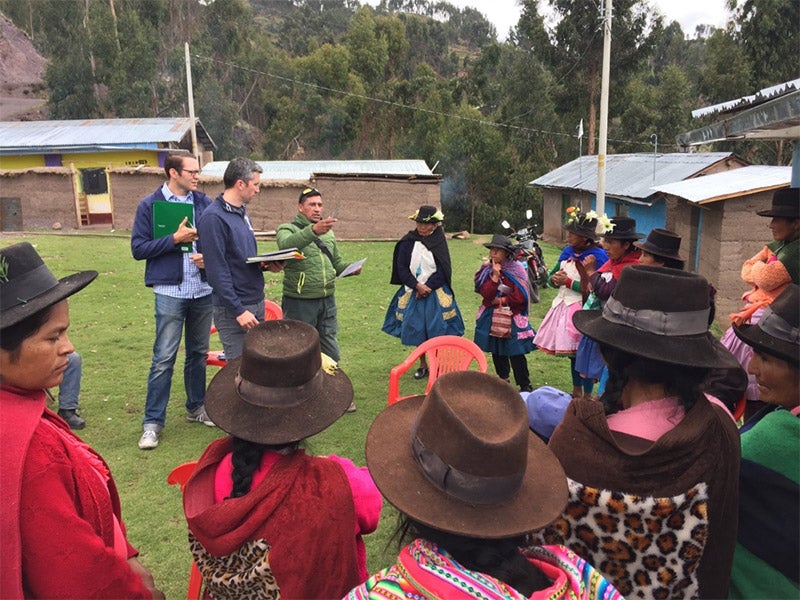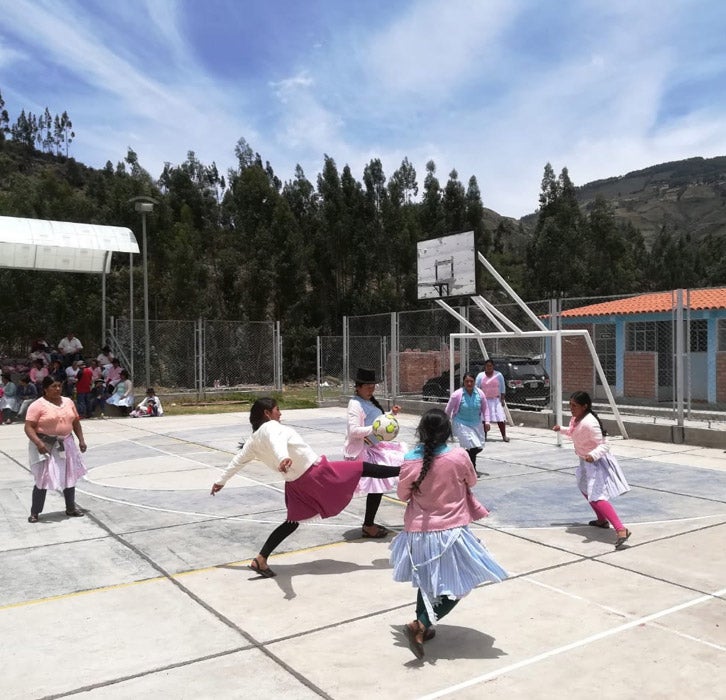It Takes a Village Bank
It Takes a Village Bank

Elizabeth Heredia (’19) leads a focus group session at a community bank | Members of the Luz Brillante community bank pose for a picture with the team
Although the five members of our Applied Management Research (AMR) team all have a wide range of different experiences and backgrounds, one thing that we have in common is our passion for social impact. In our AMR project, we hoped to make direct, positive impacts on people’s lives, and we are happy to report that that is exactly what we’re accomplishing.

The UCLA Anderson team pauses for a photo with members of a community bank
Our client, FINCA Peru, is a nonprofit organization with 25 years of experience in microfinance and development, serving more than 15,000 clients — 87 percent of whom are women — who run small businesses or farms. With the mission of empowering the Peruvian woman, her family and her community, FINCA Peru provides clients with much-needed capital and business training through village banks. These village banks aren’t banks in the traditional brick-and-mortar sense; they are groups of 10 to 25 villagers that gather monthly and collectively guarantee the loan amounts of their members. This village banking model allows those with scarce resources to borrow, invest and grow their businesses. It also allows women who are routinely denied credit to build enterprises that keep their children in school and food on the table. The mutual support that stems from the village banks encourages neighbors to support one another and contributes to invigorating the entire community.

Ballard Metcalfe (’19) and Cris Erdtsieck (’19) run a focus group with the help of FINCA promoter Rolando
One of FINCA Peru’s greatest challenges is servicing its clients, which is an expensive endeavor due to the extreme dispersion of their clients. FINCA Peru was not breaking even in their rural areas, so our team aims to help the organization develop and enhance a recent pilot program that offered more flexible loan options, with a focus on increasing client satisfaction and profitability, and ultimately helping it break even.
To gain a better understanding of the microfinance industry in Peru, FINCA Peru’s business model and the recent pilot program, our team traveled to Peru in November 2018 to interview the key stakeholders. We visited 16 village banks, conducted 161 client interviews and spoke with many staff members, which helped our team deepen our knowledge of the village banking model and of FINCA Peru’s value chain and operations. We were able to identify two important observations related to FINCA Peru’s pilot program: Clients involved in the pilot were extremely satisfied with the changes, and these changes did improve the profitability of FINCA Peru’s rural operations. While these results are encouraging, we also identified several areas of improvement, which will help shape our team’s recommendations for the next stage of FINCA Peru’s pilot program.

Women from different community bank teams play soccer in a much-anticipated matchup
Visiting the village banks and talking to both FINCA Peru’s staff and clientele gave us critical insights into significant challenges faced by and potential opportunities for the organization. As we continue to analyze our key findings, we are excited to move into the product development and financial modeling phase of our project and offer sound recommendations to our client that will add value to FINCA Peru, its mission and its clients.
UCLA Anderson MBA students conduct Applied Management Research (AMR) projects in lieu of a thesis. The nation’s first business school field study program, AMR partners students with top organizations to solve a key strategic problem. The Center for Global Management supported UCLA Anderson Class of 2019 teams to conduct critical primary research and collaborate with established NGOs seeking sustainable strategies to improve local economies, health and education outcomes, empowering local communities and developing more sustainable supply chains in environmentally sensitive parts of the world.